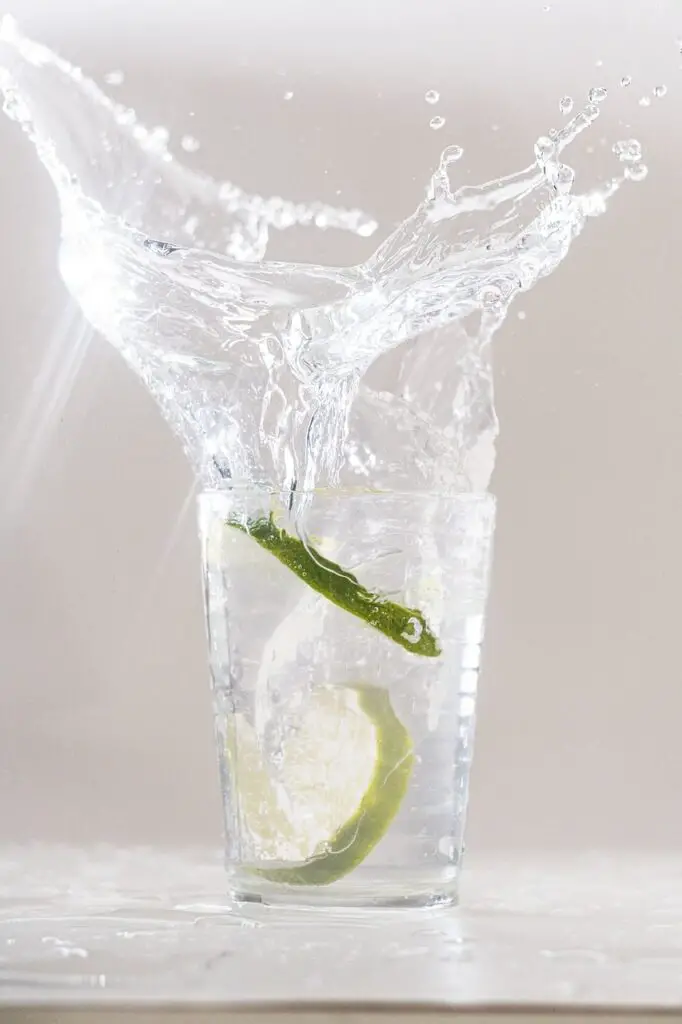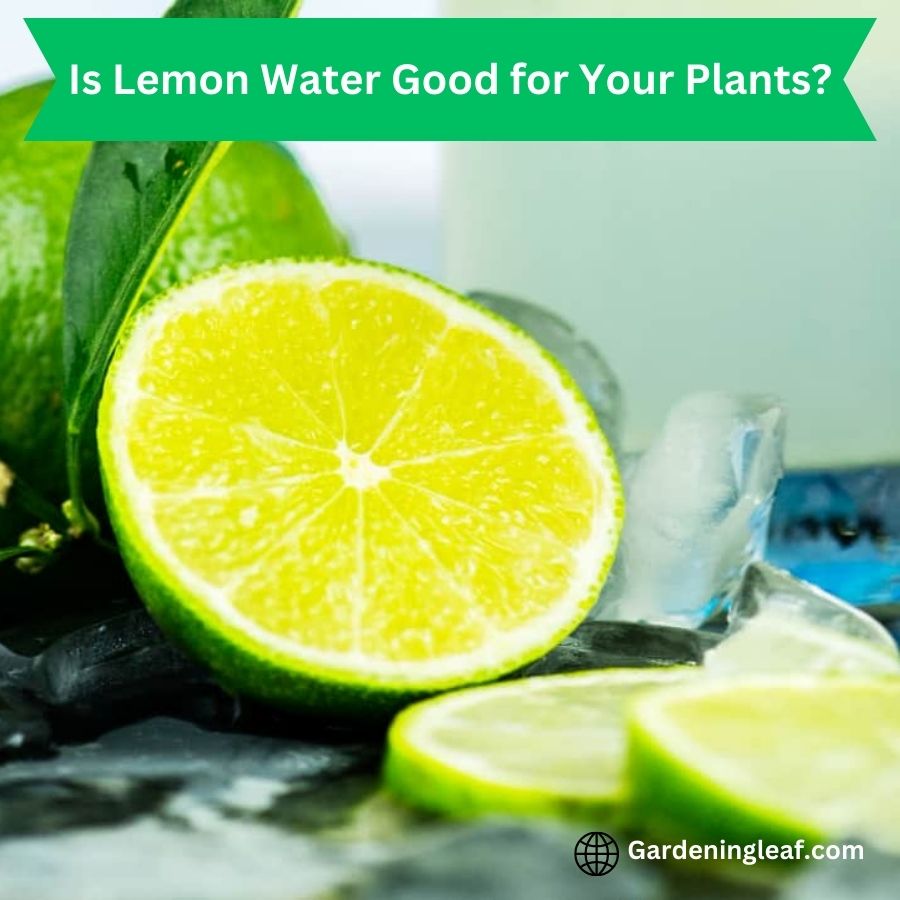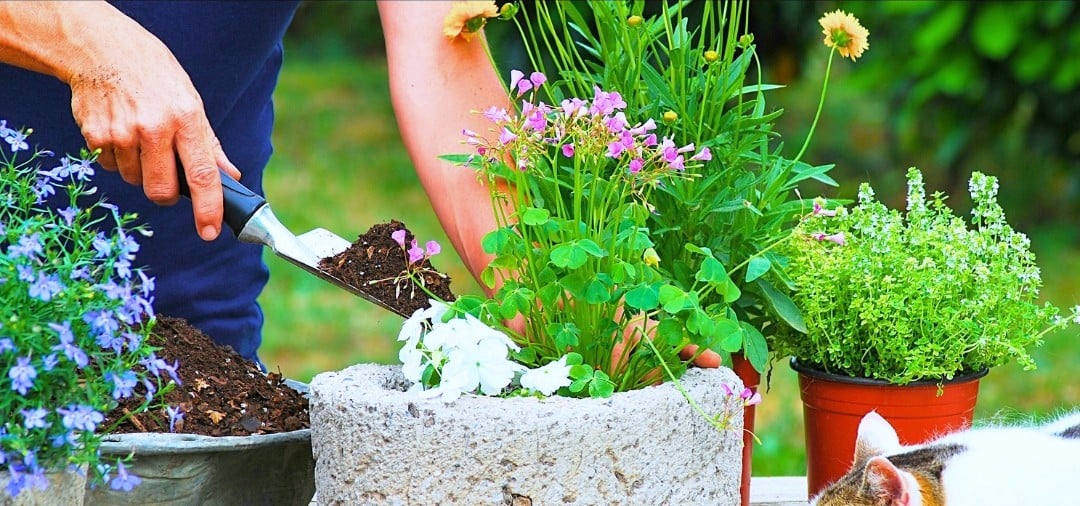When caring for our houseplants, we often look for natural ways to help them grow and stay healthy. One such natural fertilizer that has gained popularity recently is lemon water. But is lemon water good for plants?
We explore the benefits of using lemon water as a natural fertilizer. We’ll also look into how to use it, the impact of citrus on your plants, and whether it’s a good choice for your specific garden needs.
Is Lemon Water Good for Plants?
While lemon water can be a natural fertilizer for some plants. Its results depend on the type of plant and quantity used.
The acidity in lemon water can lower soil pH levels. Which can benefit certain plants, but excessive use can cause damage to roots and leaves.
Read More:- How To Get Rid Of Cactus Bugs: The Best Way To Do It
Advantages of Using Lemon Water for Plant Growth
Improved Absorption of Nutrients

Using lemon water as an organic fertilizer is a superb alternative for plants that thrive in acidic environments. This is due to the presence of citric acid, which aids in regulating the pH balance of acidic soil, thus facilitating robust plant development.
Furthermore, it can reduce the pH levels in alkaline soil, where phosphorus and nitrogen are inaccessible to plants.
Soil Acidification
Lemon water can acidify the soil. Essential for plants that flourish in acidic conditions. Hence, it’s important to research your plant’s requirements before using lemon water as a fertilizer.
Some plants, like azaleas, blueberries, and strawberries, prefer acidic soil. While others, such as peas, beans, and spinach, prefer alkaline soil. So, understanding your plant’s needs is crucial before applying any fertilizer.
You need to dilute lemon juice before using it on plants. Undiluted lemon juice can be too acidic and may harm the plants. The perfect ratio is 1 tablespoon of lemon juice and one gallon of water. This ensures that the acidity is balanced and safe for plant application.
Use citrus peels like lemon peel or peels to boost the nutrients in your compost or potting soil. Lemon peels add potassium, calcium, and vitamin C. which can provide extra benefits to your plants. You can add compost piles to it or place them at the bottom of pots for added nutritional value.
Natural Pest Deterrent
Lemon water retains natural repellent properties. That can deter certain pests from harming plants. The strong scent of lemon is a deterrent against insects like aphids, ants, and snails. Using lemon water as a natural pest control method. It can help protect your plants without harmful chemicals.
Fungal Disease Prevention
Lemon water’s antifungal properties may help prevent some fungal diseases in plants. Spraying diluted lemon water on leaves can make it hard for fungus pathogens to grow, which lowers the chance of infections. But it’s important to remember that lemon water won’t already cure fungal infections. Instead, use it as a preventive measure.
Read More:- Getting The Timing Right: Best Time To Spray Fungicide
Using Vinegar as an Alternative to Lemon Water Fertilizer
As an alternative to lemon water fertilizer. Vinegar is a beneficial natural fertilizer due to its acidity and many benefits. Dilute vinegar before use. It also lowers the soil’s pH, making it ideal for acid-loving plants like rhododendrons and azaleas.
Vinegar is a natural weed killer and promotes root growth by providing potassium and phosphorus. Its antimicrobial properties protect pests and fungi while promoting plant health. Using vinegar moderately in gardening ensures healthy plant growth.
The Impact of Citrus on Your Plants

Citrus fruits such as lemons can positively impact your garden’s health. The citric acid in pure lemon juice helps break down organic matter. It is easier for roots to absorb vital nutrients such as potassium, phosphorus, nitrogen, and calcium.
The acidity of lemon water is perfect for acid-loving plants like azaleas and rhododendrons, which flourish in conditions similar to those in acidic environments.
At the same time, neutral pH soils benefit from their alkalinity.
Exploring the Benefits of Baking Soda for Your Plants
Baking soda is also a natural fertilizer with many benefits for plants. It helps combat fungal diseases, balances soil pH levels, and refreshes plant pots or containers. It helps plant photosynthesis and health when used in moderation.
Make a patch test before application to avoid harming the plant roots. Try using banana peels or compost as alternative sources of nitrogen and phosphorus for your acid-loving plants next time.
Using Milk as a Natural Fertilizer for Your Plants
Milk can indeed be used as a natural fertilizer for plants. Milk contains Calcium, potassium, and magnesium, which are necessary for the growth and maturation of plants.
Milk also includes beneficial bacteria that can help improve soil health and reduce the risk of plant diseases. Before using dilute it with water at a ratio of 1:4. and apply it to the soil around your plants. Use it sparingly, as too much milk can cause bad smells and bring in bugs.
Frequently Asked Questions
Will lemon water harm all types of plants?

While lemon water can benefit acid-loving plants, it may not suit all plants. Some plants prefer a more alkaline environment, and the acidity of lemon water could harm their roots.
Doing a patch test before applying lemon water to any plant is always best to avoid causing damage.
How often should I apply lemon water to my plants?
Excessive application of lemon water can harm the plants and disrupt the pH balance of the soil.
So Applying a few drops of lemon juice in your watering can or spray bottle once every two weeks or as needed is best.
Are there any other natural pest deterrents for plants?
Yes, there are several natural pest deterrents for plants. such as neem oil, garlic spray, and companion planting with pest-repellent herbs.
Can lemon water be used as a foliar spray?
Yes, lemon water can be used as a foliar spray for plants. Use just a small amount of it after mixing it with water. Applying too much lemon water directly to the leaves of your plants can cause sunburn and damage to the plant tissue. Do a patch test on a small area of foliage before applying the entire plant.
Conclusion
In this article, we discuss is lemon water good for plants or not. While lemon water can benefit some plants, it may not suit all types. It’s best to do a patch test before applying it and use it sparingly to avoid disrupting the pH balance of the soil. Lemon water is a very effective natural fertilizer for your plant if you use it properly.
Source: – https://www.hunker.com/13428101/what-happens-if-plants-are-watered-with-lemon-juice


